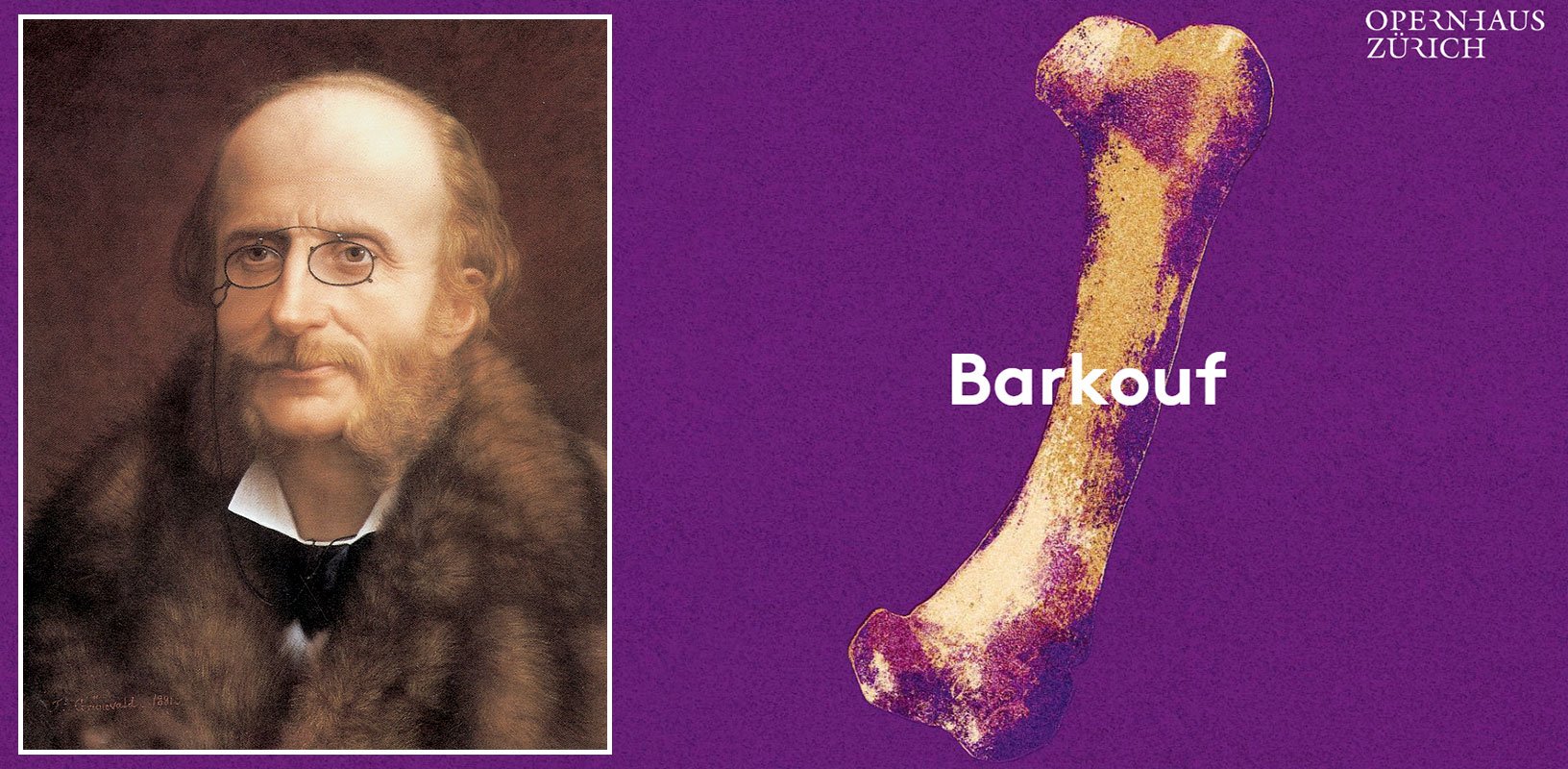OPERA SEARCH
Offenbach’s Barkouf bites in Zürich thanks to OEK

Offenbach’s satirical opéra bouffe Barkouf, telling of a city governed by a dog, is staged for the first time in Switzerland in October, with a new Zürich Opera production. The work was revived in 2018 after 150 years thanks to the Offenbach Edition Keck.
The curtain goes up on 23 October for the Swiss premiere production of Jacques Offenbach’s satire Barkouf, the latest in a series of high profile stagings since its relaunch in 2018, after a century and a half of silence. First staged at the Salle Favart in Paris in 1860, the opéra bouffe vanished from the repertoire until the sleuthing of Jean-Christophe Keck rediscovered the work, leading to new performing materials in the Offenbach Edition Keck. Barkouf counts as one of the edition’s major restorations to the Offenbach stage oeuvre, alongside Les Fées du Rhin, Fantasio and Le Roi Carotte.
The first modern stagings of the ever-topical Barkouf took place at the Opéra national du Rhin in Strasbourg in 2018 and at Cologne Opera the following year to celebrate the composer’s bicentenary. Die Zeit described the opéra bouffe as “A masterwork!... the sharpest musical political satire of the 19th century … The 41-year-old Offenbach had buried his dog so well after his defeat that only a detective like Jean-Christophe Keck was able to track down the scores.” The Frankfurter Allgemeine Zeitung praised the “piquant rhythms everywhere, harmonic-melodic surprises, loving or ironic instrumental solos from cello and woodwind and a skilful orchestral intensification which puts the listener in ever greater expectation and tension”.
The new Zürich production of Barkouf is in the hands of Max Hopp, the German director and actor, who has already enjoyed an Offenbach splash with his virtuoso assumption of the role of John Styx in the acclaimed Salzburg Festival production of Orpheus in the Underworld by Barrie Kosky. The cast for the ten scheduled performances running through October and November includes Brenda Rae, Rachael Wilson and Marcel Beekman with Jérémie Rhorer conducting the Opernhaus Zürich forces.
> Visit the Zürich Opera website
Synopsis
In Lahore, the tenth governor within a year has just been overthrown. The population is tired of the government’s repressive measures and chicanery, and yearns for a just political leadership. But things get even worse. As a warning, and to humiliate the masses, the Great Mogul appoints his dog as the new governor. The people are in a panic, for the four-legged governor does not make the impression of being easy to deal with. Bababeck, the last governor’s corrupt cupbearer who thought he had a good chance of succeeding to the position, is appointed vizier. It is he who has to implement the boss’s commands, or else.... For years Bababeck has attempted to marry off his unattractive daughter Périzade. Finally, he has found a candidate who cannot resist. It is Saëb, the son of a government official against whom Bababeck has acquired damning evidence. However, Saëb loves Maïma, a vendor at the Lahore market whom he has not seen since he was forced into military service years earlier by the Great Mogul’s mercenaries. In order to save his father’s life, he agrees to the marriage with Périzade. But not only was Maïma’s beloved abducted at that time, but also her faithful dog Barkouf, who is no other than the new governor. She cleverly gains entry to the court and lets herself be appointed by Bababeck as Barkouf’s secretary and translator, since she is the only one whom the animal tolerates in his proximity. Bababeck thinks he can make Maïma into the voice of his own political intentions, yet the shrewd Maïma knows how to use the situation for the good of the people in that she "translates" Barkouf’s proclamations in such a way that they lead to an improvement of everybody’s living conditions: tax cuts, amnesties for political prisoners, etc. Maïma not only succeeds in preventing the marriage between Périzade and Saëb, but also thwarts a conspiracy against Barkouf by Bababeck and the meanwhile out-of-work court flunkeys. In the end, the Great Mogul can only legitimize the new state of affairs: the marriage of the sagacious Maïma with Saëb, and a wise governor Barkouf who is hailed by the people.
This autumn has also brought a new recording in London of Offenbach’s La Princesse de Trébizonde, the first for the stagework to feature the Offenbach Edition Keck. Paul Daniel conducted Opera Rara with the London Philharmonic Orchestra plus a cast including Virginie Verrez, Anne-Catherine Gillet and Harriet Walter as narrator. The recording and linked concert at the Queen Elizabeth Hall followed the success of Opera Rara’s recording of Offenbach’s Fantasio in 2014.
The New Year brings a wide range of new European stagings using the Offenbach Edition Keck including La Périchole at Theater an der Wien with star director/puppet virtuoso Nicolaus Habjan opening on 8 January, and a new Orpheus in the the Underworld at the Volskoper in Vienna with a production by the British physical theatre company Spymonkey opening 21 January.
> Visit the Offenbach Edition Keck website
> Further information on Work: Barkouf (OEK critical edition)
Photo: F Grünewald (1881)
